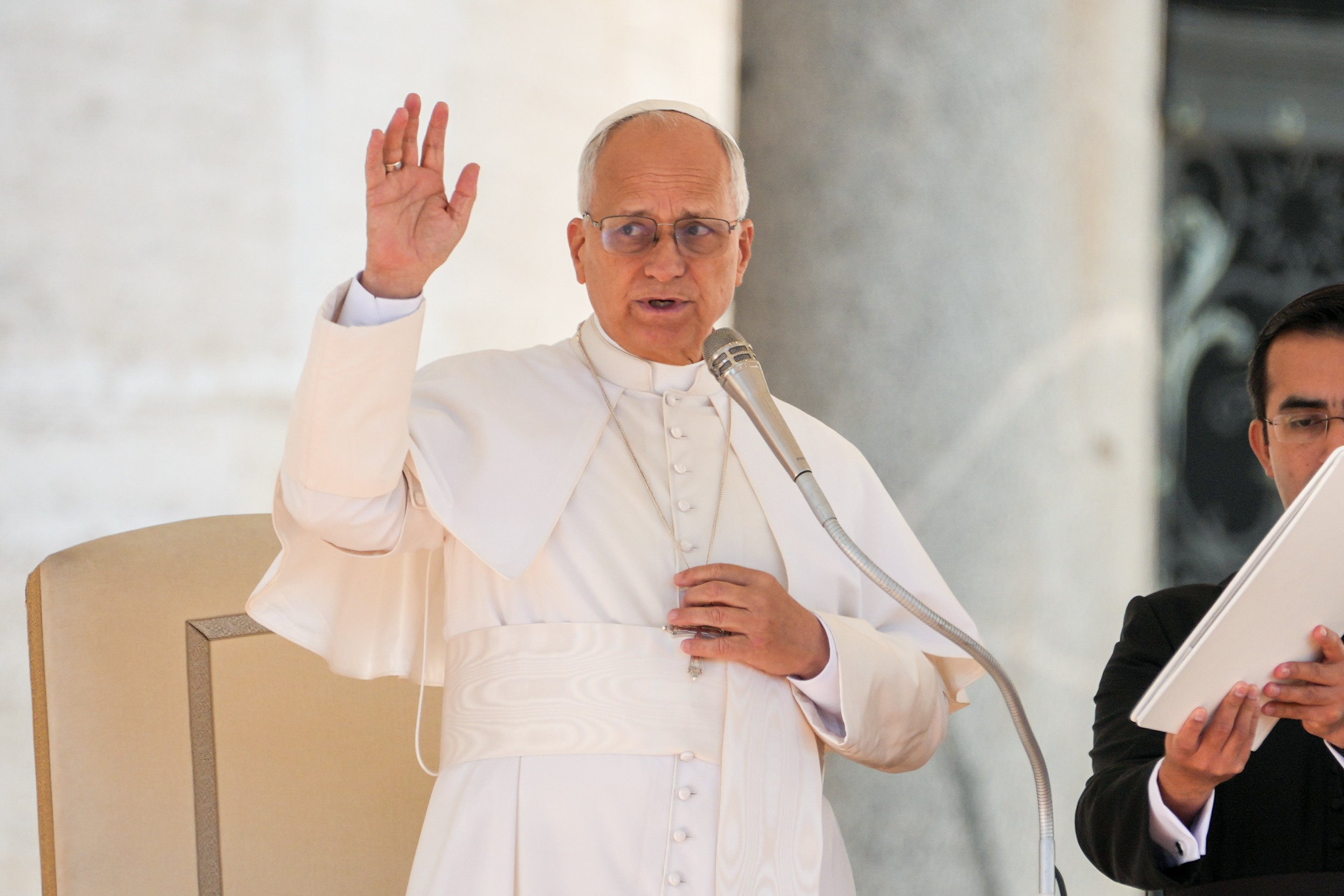April 6, 2018 at 1:53 p.m.
WORD OF FAITH
The Church, for all people
'He looked up and saw three men standing near him....He said, "My lord, if I find favor with you, do not pass by your servant."' - Genesis 18: 2-3
Though it's not "good form" to begin a biblical commentary by mentioning what a text doesn't say, it might be necessary to do so in the case of Sunday's Gospel (Luke 10:38-42).
Our well-known Martha/Mary story wasn't created by Luke to highlight the superiority of the "contemplative" life over the "active" life. Luke is simply telling his Gospel community that, following Mary's example, even women can become active disciples of Jesus.
Even more than that, Luke is demonstrating what can happen when people practice one of Scripture's classic ways of demonstrating their commitment to God: hospitality.
As far back as Abraham and Sarah (Genesis 18:1-10a), the first Jews, people of faith were expected to be hospitable to strangers. In offering food, drink and rest to three travelers, this special couple discovers they're actually taking care of Yahweh.
(The "three" certainly aren't the Trinity. Our Genesis author is simply saying no one human depiction of Yahweh can encompass all of God's otherness; like children, when drawing pictures of their parents, always make them larger than the other people they depict to show their importance in their lives, our sacred authors also "expand" Yahweh.)
Welcome the stranger
Biblical writers are convinced that no one can welcome strangers into their lives without surfacing things they've never before noticed or experienced. A generous act also brings blessings and changes to the actor.
In the case of Abraham and Sarah, they're going to become parents. The child for whom they longed for years is now just nine months away.
In the case of Martha and Mary, an act of hospitality to an itinerant preacher on His way to Jerusalem brings about a total change in the direction of their lives. Martha's chided for not being able to see beyond people's expectations of her; Mary's praised for stepping outside her accepted gender role and actually opening the door to the possibility of becoming another Christ.
Had the sisters waited for someone else to step up and care for this Galilean carpenter, their lives would no doubt have been smothered in mediocrity. When they opened their home to Jesus, they also opened themselves to experiencing a brand new life.
Welcome everyone
Along the same line, the follower of Paul who composed Colossians (1:24-28) reflects on what happened when the Church opened its doors to 99 percent of the human race.
As far as we can tell, first-generation Christians evangelized only Jews: After all, their mentor, Jesus, was a Jew who instigated a Jewish reform. Why would Gentiles be interested in a Jewish movement?
But the writer's mentor, Paul, not only was able to experience the risen Jesus even in those who were outside the "true" faith, but eventually came to realize that God actually wanted "the riches of His glory" to be made known to these Gentiles.
The risen Jesus could be embedded in them just as much as He was embedded in Jews who had committed themselves to imitating His dying and rising. By opening the door to Gentiles, as Gentiles, Paul and his followers began to understand their faith and their ministry from a totally new perspective.
Yet, as our author states, openness is always accompanied by suffering and affliction. Among other hardships, we'll have to struggle with those who contend we should keep our doors shut and let well enough alone.[[In-content Ad]]
SOCIAL MEDIA
OSV NEWS
- Pope offers prayers for the Philippines and for peacemakers
- Dig deep and work patiently to keep church on solid foundation, pope says
- Portland archbishop on ICE: Human dignity comes from God, not government
- Christian hope shows the earth can resemble heaven, pope says
- Washington Roundup: Election shifts; Venezuela vote; transgender passports, and more
- Novel highlights power of art and music as a salve to troubled humanity
- Supreme Court sides with Trump administration to temporarily block full funding for SNAP
- Former diocesan fundraising director indicted on wire fraud for alleged 6-figure theft
- Love is key to church’s mental health ministry, says bishop who lost family to suicide
- Caring for creation is part of peacemaking, pope tells COP30







Comments:
You must login to comment.